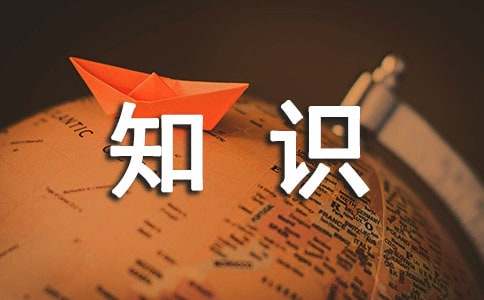小学英语必背基础知识归纳
小学英语是很简单的,因为对语法的要求很低,这个阶段以听课为主,只要将课堂上的知识掌握好就足够了。下面是百分网小编为大家整理的小学英语必背基础知识,希望对大家有用!

小学英语知识归纳
句型专项归类
1、 肯定句:是指用肯定的语气来陈述的句子,如:
I’m a student. She is a doctor. He works in a hospital. There are four fans in our classroom. He will eat lunch at 12:00. I watched TV yesterday evening.
2、否定句:含有否定词或表示否定意义词的句子,如:I’m not a student. She is not (isn’t) a doctor.
He does not (doesn’t) work in a hospital. There are not (aren’t) four fans in our classroom.
He will not (won’t) eat lunch at 12:00. I did not (didn’t) watch TV yesterday evening.
☆注意 小结:否定句主要是在肯定句的基础上加上了否定词 ―not‖。有动词be的句子则―not‖加在be后面,可缩写成―isn’t,aren’t‖,但am not 一般都分开写。没有动词be的句子则要先在主要动词的前面加上一个助动词(do,does,did),然后在它后面加上―not‖,你也可以把它们缩写在一起如―don’t , doesn’t , didn’t )。这三个助动词要根据人称和时态来选择,其中―does‖只用于一般现在时主语是第三人称单数的情况,而―did‖只用于一般过去时,不论主语是什么人称和数,都用―did‖ 。
3、一般疑问句:是指询问事实的句子,此类句子必须用―yes‖,或―no‖来回答。
如:Are you a student? Yes, I am / No, I’m not.
Is she a doctor? Yes, she is. / No, she isn’t.
Does he work in a hospital? Yes, he does. / No, he doesn’t.
4、特殊疑问句:以特殊疑问词(what , where , who , which , when , whose , why , how等)开头引导的句子。此类句子应该问什么就答什么,不能用
―yes 、no‖来回答。如:
What is this? It’s a computer.
What does he do? He’s a doctor.
小学英语知识总结
动词过去式详解 动词的过去式的构成规则有:
A、规则动词
① 一般直接在动词的后面加ed:如 worked , learned , cleaned ,
visited
② 以e结尾的'动词直接加d:如 lived , danced , used
③ 以辅音字母加y结尾的动词要改y为i再加ed(此类动词较少)如
study – studied carry – carried worry – worried (注意play、stay不是辅音字母加y,所以不属于此类)
④ 双写最后一个字母(此类动词较少)如 stopped
B、不规则动词(此类词并无规则,须熟记)小学阶段要记住以下动词的原形和过去式:
sing – sang , eat – ate , see – saw , have – had , do – did , go – went , take – took , buy – bought , get – got , read – read ,fly – flew , am/is – was , are – were , say – said , leave – left , swim – swam , tell – told , draw – drew , come – came , lose – lost , find – found , drink – drank , hurt – hurt , feel – felt
小学英语知识要点
现在完成时主要用于:
1 、表示到现在为止这一时期中发生的动作或情况,即多次动作的总和。
e.g. We have learnt four English songs this month.
How many times have you read the novel?
For many days we haven`t seen each other.
2 、表示对现在有影响的某一已发生的动作。
e.g. The delegation has left 代表团已经走了(说明现在不在这里) Look, what you have done. 看你干的事。
与这一时态连用的时间状语有:
already, yet, just, ever, never, by now, so far, recently, by the end of this month, since, for 短语,连词 since 引导的时间状语从句。 一般过去时与现在完成时的区别:
一般过去时:重在说明动作在过去发生时的具体情况(时间、地点、方式、对象、细节等)。
现在完成时:只提起已发生的动作(事实)及其影响,不说明动作发生时的具体情况。
cf. Have you had your lunch?
What did you have for lunch?
I have ever been to the Great Wall,_and_I went there last summer with my father.
注:现在完成时表达的动作常具有反复性,故下面一句是错的:
Have you seen the six thirty`s news program?
应改为:
Did you see the six thirty`s news program?
【小学英语必背基础知识归纳】相关文章:
必背语文基础知识归纳04-21
初一必背英语短语归纳11-22
初中英语必背词汇归纳08-29
小学英语必背短语12-02
会计基础知识必背01-25
小学阶段必背英语短语11-30
初中英语介词的必背词汇归纳08-28
山东会计基础知识必背02-22
少儿英语星级考试固定搭配必背句型归纳05-09
会计基础知识必背100题11-02